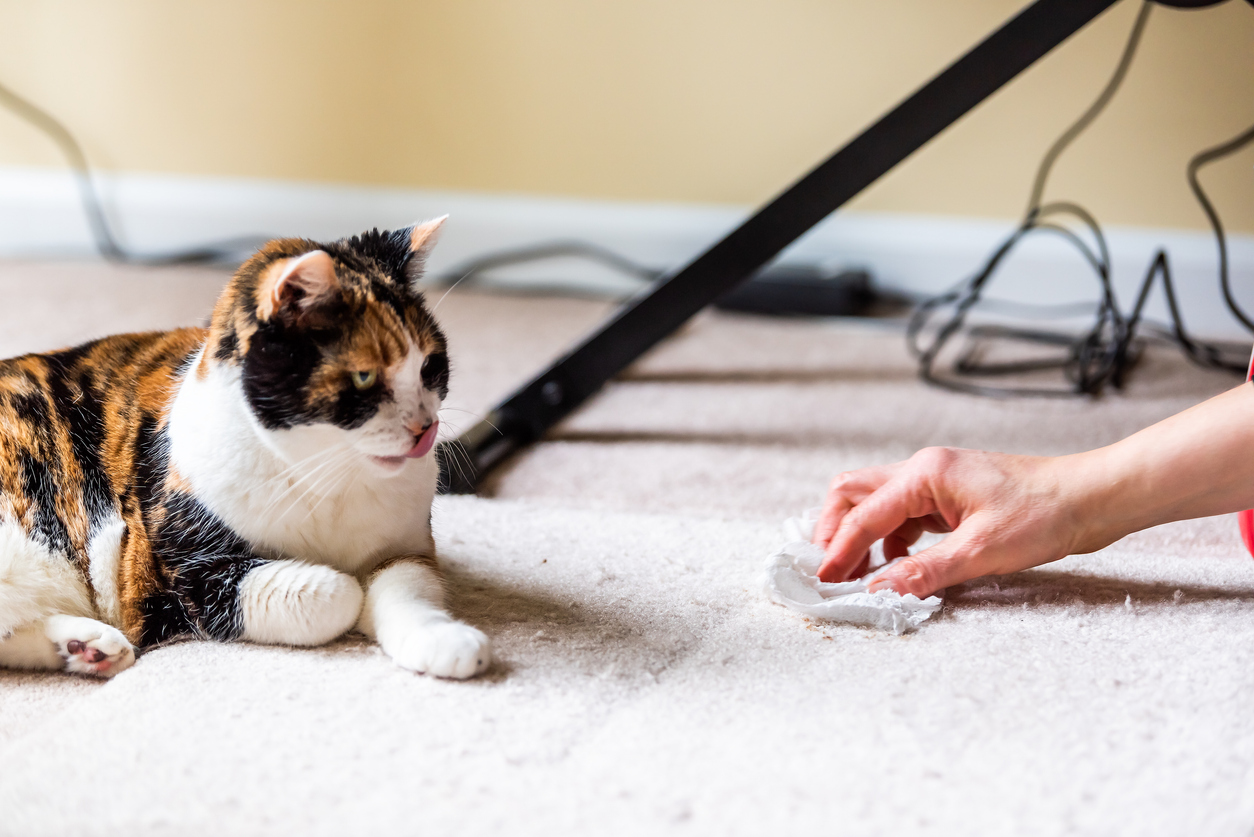Understanding the Reasons Behind Inappropriate Urination
Medical Causes
Cats often pee outside their litter box due to underlying medical conditions. It’s essential to rule out any health issues first.
- Urinary Tract Infections (UTIs): Infections can cause discomfort, leading cats to associate the litter box with pain.
- Kidney Disease: Kidney issues can result in increased urination.
- Diabetes: This condition often leads to excessive thirst and urination.
- Bladder Stones or Crystals: These can cause blockages and pain.
Consult with a veterinarian to conduct a thorough examination and diagnostic tests if your cat exhibits any unusual behavior.
Behavioral Reasons
Understanding your cat’s behavior can help address the problem effectively.
- Stress and Anxiety: Changes in the household, such as new pets, moving, or changes in routine, can cause stress.
- Territorial Marking: Cats may spray urine to mark their territory, especially in multi-cat households.
- Litter Box Issues: Cats are particular about their litter boxes. An unclean or improperly placed box can lead to avoidance.
Solutions to Stop Your Cat from Peeing in the House
Address Medical Issues
Once any medical conditions are ruled out or treated, focus on the behavioral aspects.
Create a Cat-Friendly Environment
Reduce stress and make your home a more cat-friendly place.
- Safe Spaces: Provide hiding spots and elevated areas where your cat can feel secure.
- Consistent Routine: Stick to a regular feeding and playtime schedule.
- Calming Aids: Use pheromone diffusers or sprays to reduce anxiety.
Improve the Litter Box Situation
Making the litter box appealing can significantly reduce inappropriate urination.
- Cleanliness: Scoop the litter box daily and change the litter regularly.
- Type of Litter: Experiment with different types of litter to find one your cat prefers.
- Number of Litter Boxes: Have one more litter box than the number of cats in your home.
- Location: Place litter boxes in quiet, accessible areas.
Address Territorial Marking
If your cat is marking territory, take steps to reduce this behavior.
- Neutering/Spaying: This can significantly reduce marking behavior.
- Clean Marked Areas: Use enzymatic cleaners to remove the scent and prevent re-marking.
- Behavioral Training: Discourage marking by interrupting the behavior and redirecting to an appropriate spot.
Training and Behavioral Modification
Positive Reinforcement
Reward your cat for using the litter box.
- Treats and Praise: Offer treats and praise when your cat uses the litter box correctly.
- Playtime: Engage in play sessions near the litter box to create positive associations.
Deterrents
Discourage urination in inappropriate places.
- Aluminum Foil or Double-Sided Tape: Place these on areas where your cat tends to urinate to deter them.
- Citrus Scents: Cats often dislike citrus smells. Use citrus-scented sprays in problem areas.
Stopping your cat from peeing in the house requires understanding the underlying causes and taking appropriate measures. By addressing medical issues, reducing stress, improving litter box conditions, and using positive reinforcement, you can create a harmonious environment that encourages proper urination habits. Regular monitoring and adjustments will ensure long-term success in preventing inappropriate urination.
Yours in Paws,
The PawPaw Team

